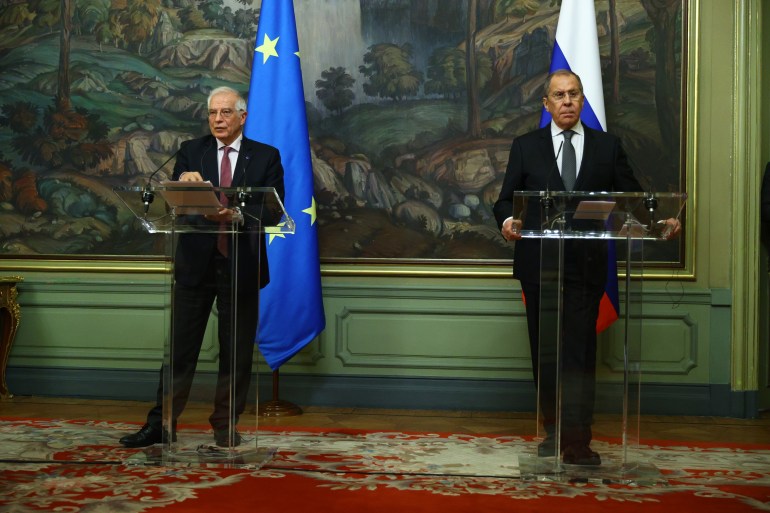Russia announced today, Friday, the expulsion of diplomats from Germany, Poland and Sweden from its soil, accusing them of participating in demonstrations in support of imprisoned prominent opposition figure Alexei Navalny, and for its part, Berlin warned Moscow of the consequences of its decision and pledged to respond.
The Russian Foreign Ministry said in a statement that it had summoned the Swedish ambassador, the Chargé d'Affairs of Poland and the envoy of the German embassy, to inform them of its protest against the registered participation of employees of the Swedish and Polish consulates general in St. Petersburg and the Berlin embassy "in the illegal demonstrations on January 23 last."
These are the demonstrations that took place in Russia to reject the arrest and trial of the opposition, Navalny, after his return from a medical trip in Germany, on January 17.
The Foreign Ministry considered that the behavior of foreign employees "is unacceptable and does not match their diplomatic qualities" and called on them to leave the Russian Federation as soon as possible. It also classified the diplomats participating in the demonstrations as persona non grata in accordance with the Vienna Convention on Diplomatic Relations.
Merkel's statement
In response to Russia's decision, German Chancellor Angela Merkel said at a press conference today that the expulsion of European diplomats over the Navalny case is an "unjustified" step. Foreign Minister Heiko Max warned that "if Russia considers this measure, it will not pass without a response."
In the same direction, Sweden denounced the decision to expel one of its diplomats, rejecting Russian accusations that he participated in a demonstration in support of the Navalny opposition. The Ministry of Foreign Affairs said in a statement that it reserves the right to respond "proportionately."
For his part, European Union foreign policy coordinator Josep Borrell, who is visiting Moscow, condemned Russia's decision to expel 3 European diplomats, calling for it to be reconsidered, and rejecting the allegations of European diplomats' activities that contradict their status as foreign diplomats.
Russian Foreign Minister (right) at a joint press conference today with the European Union (European) foreign policy coordinator
Reciprocal accusations
In a related context, the European Union's foreign policy coordinator appealed today to Russia to release Navalny, whose case caused a decline in relations between the two sides, and the European Union imposed sanctions on Russian figures for the arrest of this opponent.
Last Tuesday, a Russian court sentenced Navalny to nearly 3 years in prison for allegedly violating the rules for parole, charges he described as fabricated, and the West strongly condemned this ruling.
Borrell returned to explain that there is still no official proposal to impose new sanctions on Russia, but that the bloc will hold discussions next month on relations with Moscow, and he described the Union's relations with Moscow as very tense and that the Navalny case had made it to its lowest levels.
On the other hand, Russian Foreign Minister Sergey Lavrov said that it is up to Brussels if it wants to impose sanctions on his country, but the European Union "has become more and more like Washington in its use of unilateral sanctions."
He described the conglomerate as an unreliable partner.
The Russian Foreign Ministry called on Western countries not to interfere in its affairs, after the issuance of many official Western statements calling for the release of Navalny, who was sentenced to 3 and a half years imprisonment.

